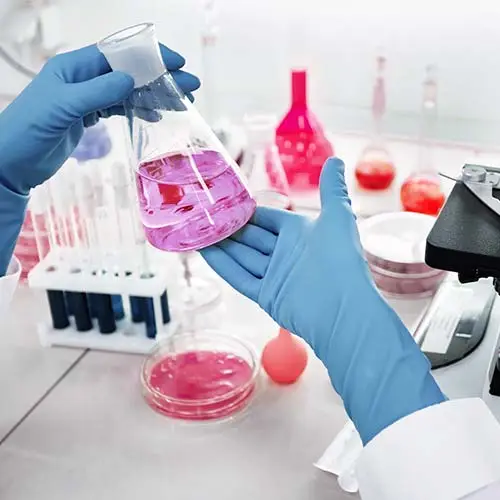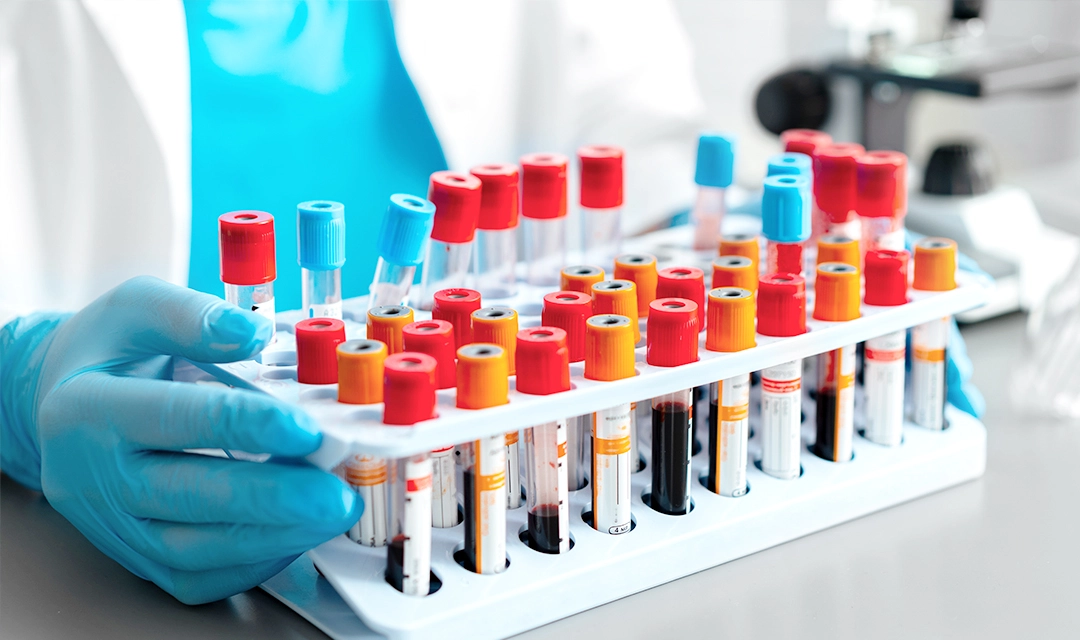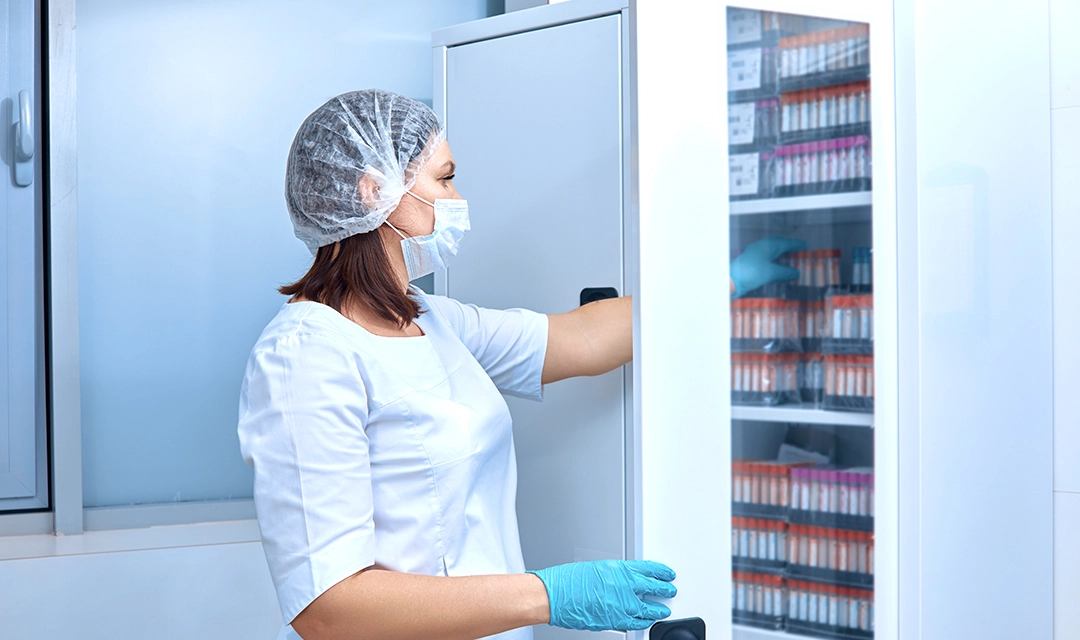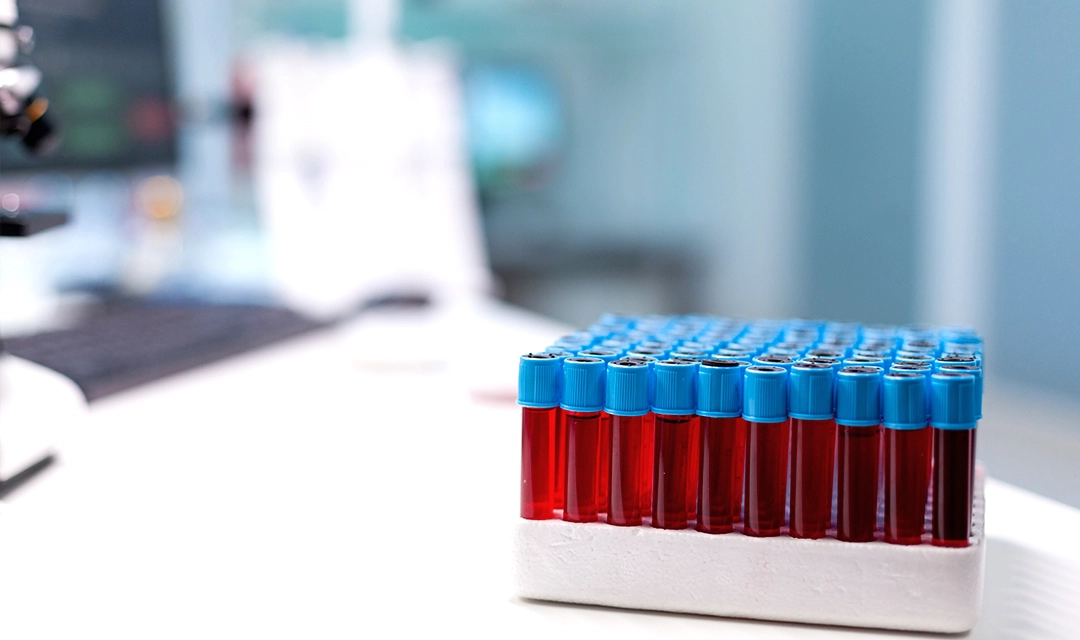- +1 (408)580-1396
- info@ibiospecimen.com
Human Biospecimens for Research in Colorado
In today’s advanced medical landscape, accessing specific types of human biospecimens has been remarkably streamlined, especially with the revolutionary platform known as iBioSpecimen, which includes Colorado in its reach. This platform facilitates the easy acquisition of a wide array of patient-level data along with the biospecimens themselves.
One of the key advantages of utilizing iBioSpecimen is the unprecedented access it offers to diverse patient populations. This means researchers and medical professionals can tap into a vast pool of individuals from various demographics, medical histories, and geographical locations, enhancing the comprehensiveness of their research and medical initiatives.
Moreover, iBioSpecimen’s extensive global network of human biospecimen suppliers plays a crucial role in ensuring success in obtaining the required samples. These suppliers are equipped to source a multitude of biospecimens, including clinical remnants, banked samples, and prospectively collected specimens. This diverse range of sample types allows researchers to study and compare data from different stages of disease progression or recovery, contributing to valuable insights and advancements in the field of medicine.
Streamline procurement, from inquiry to fulfillment, so you can focus on advancing your research.


Biofluids
USA offers a diverse range of human biofluids for research, enabling scientists to study diseases, develop diagnostics, and advance medical breakthroughs. These valuable resources fuel innovative research and contribute to better healthcare outcomes.


Tissue Samples
Human tissue samples are vital for medical research, aiding in understanding diseases and developing treatments. In the USA, a wealth of diverse tissue samples empowers scientists to drive advancements in healthcare and improve lives worldwide.


Matched Sets
Matched biospecimen sets are invaluable for research, providing related samples from the same individual. In the USA, these sets aid in studying diseases comprehensively, accelerating discoveries, and advancing personalized medicine.


Swabbed Samples
Source almost any kind of swab. We can assist you in locating the precise specimen you require, including nasopharyngeal, buccal, ocular, ear, vaginal, and more from healthy persons to transplant patients and beyond. Give us your requirements, and we'll take care of the rest.


Urine
Collecting urine samples from healthy and diseased individuals can help identify diagnostic markers, disease progression, or treatment response. Urine samples can come from banked sources or be collected prospectively. Delivery methods may include fresh or frozen samples.


Stool Samples
Collect feces samples that have been frozen or kept fresh using a variety of preservatives from around the world. Investigate the differences between the microbiomes of healthy and sick tissue, IBD phases, parasite phenotypes, and other cohorts.

Finding the Right Human Biospecimens for Your Research
iBioSpecimen Marketplace is a fast, compliant, revolutionary one-stop access to millions of human biofluids and patients from a diverse network of providers
Recent Projects Made Possible
By partnering with ibiospecimen you can access records of human biology and patients. This is made possible by our collaborative partners, including hospitals, biobanks, commercial laboratories, HIEs and other international hospitals.

Banked Plasma & PBMCs For Early Stage Cancer
Collected frozen samples: 2 mL of ACD plasma and PBMC (Ficoll separation) from 40 patients with early stage HCC.

Remnant Serum from 200 Patients
Materials obtained: 1.5 mL frozen serum samples (multiple anti-TSHR levels) from 200 patients with Graves' disease, Hashimoto's disease, and other thyroid diseases.

Prospective Blood Collection With Imaging
Strategic resources: Observation and testing data from cancer patients such as 50 mL blood sample, mammography or colonoscopy.
What types of human biospecimens are available for research?
In medical research, various types of human biospecimens are available for study and analysis. These biospecimens are collected from individuals for research purposes, with the aim of understanding diseases, developing new treatments, and improving healthcare outcomes. Some commonly used human biospecimens include:
1. Blood: Blood is one of the most commonly collected biospecimens for research purposes. It provides valuable information about an individual’s health, including the presence of diseases, levels of hormones, proteins, and other biomarkers. Blood samples are often used for genetic testing, measuring cholesterol levels, detecting infections, and monitoring treatment effectiveness.
2. Tissue: Tissue samples, obtained through biopsies or surgical procedures, are essential for studying various diseases, such as cancer. These samples can be used to analyze the genetic and molecular characteristics of tumors, identify specific biomarkers, and develop personalized treatment approaches. Tissue samples can come from organs, such as the liver, lungs, or breast, or from specific anatomical sites like the skin or lymph nodes.
3. Urine: Urine samples provide valuable insights into kidney function, metabolic disorders, and urinary tract infections. Researchers can analyze urine for the presence of certain substances, such as glucose, protein, or drugs, which can indicate specific health conditions. Urine samples are often used in clinical trials and epidemiological studies.
4. Saliva: Saliva contains a wide range of biological molecules, including DNA, RNA, and proteins. It can be easily collected and is non-invasive, making it a convenient biospecimen for research purposes. Saliva samples can be used to study genetic variations, identify biomarkers for diseases, and monitor drug effectiveness. They are particularly useful for research on oral health, infectious diseases, and genetic disorders.
5. Cerebrospinal fluid (CSF): CSF is a clear fluid that surrounds and protects the brain and spinal cord. It can be collected through a procedure called a lumbar puncture. CSF samples are essential for diagnosing and studying neurological disorders, such as multiple sclerosis and meningitis. They can provide valuable information about the presence of infections, levels of certain proteins, and the overall health of the central nervous system.
6. Stool: Stool samples, also known as fecal samples, contain a wealth of information about the gut microbiome and digestive health. Researchers can analyze stool samples to study the composition of gut bacteria, identify biomarkers for gastrointestinal diseases, and assess the effectiveness of treatments such as probiotics. Stool samples are often used in studies on conditions like irritable bowel syndrome and inflammatory bowel disease.
7. Hair: Hair samples can be used for analysis in a variety of research fields, including toxicology, drug testing, and nutritional studies. Hair can provide a long-term record of exposure to certain substances, such as drugs or environmental toxins. It can also provide information about nutrient deficiencies or excesses. Hair samples are particularly useful for studying drug use patterns and long-term effects, as well as for monitoring changes in nutritional status over time.
8. Breath: Breath samples are becoming increasingly popular in research and diagnostics. Breath contains volatile organic compounds (VOCs) that can be used to detect and monitor various diseases, including lung cancer, asthma, and liver disease. Breath analysis is non-invasive, making it an attractive option for patients. It can provide valuable information about metabolic processes, oxidative stress, and inflammation in the body.
9. Tears: Tears can be a valuable biospecimen for studying various eye diseases and systemic conditions. They contain proteins, lipids, and other molecules that can indicate the presence of certain diseases. Tear samples can be collected using specialized collection devices or by placing a sterile filter strip in the lower eyelid. They are particularly useful for studying conditions like dry eye syndrome, glaucoma, and diabetic retinopathy.
10. Skin: Skin samples can provide valuable insights into various dermatological conditions and skin diseases. Researchers can analyze skin samples to study the structure and function of skin cells, identify biomarkers for skin cancer, and evaluate the effectiveness of topical treatments. Skin samples can be collected using non-invasive methods like tape stripping or skin biopsies for more in-depth analysis.
What safety protocols must be followed when handling human biospecimens for research?
When handling human biospecimens for research purposes, it is crucial to follow strict safety protocols to ensure the integrity of the samples and the safety of the individuals involved. Here are some key safety protocols that should be followed:
1. Personal Protective Equipment (PPE): Wear appropriate PPE, including gloves, lab coats, and safety goggles, to protect yourself from potential hazards and to prevent contamination of the samples.
2. Proper Handling and Labeling: Handle the biospecimens carefully and avoid any unnecessary contact. Use sterile containers or tubes for collection and ensure that they are properly labeled with unique identifiers to avoid any mix-up or confusion.
3. Containment: Ensure that the research area is designed and equipped to prevent the release of any infectious agents or hazardous substances. Use biosafety cabinets or fume hoods whenever necessary, which provide a controlled environment to minimize the risk of contamination.
4. Storage and Transportation: Store the biospecimens at the appropriate temperature and conditions to maintain their viability. Use secure storage units and transport containers that are specifically designed for the type of specimen being handled.
5. Decontamination: Regularly clean and decontaminate the work surfaces, equipment, and tools used during the handling process to prevent cross-contamination. Use appropriate disinfectants and follow the recommended protocols for decontamination.
6. Training and Education: Ensure that all personnel involved in handling human biospecimens receive proper training on biosafety measures, handling techniques, and emergency procedures. Regularly update their knowledge through continuing education to stay up-to-date with the latest safety protocols and guidelines.
7. Documentation: Keep detailed records of all the biospecimens handled, including collection date, source, and any relevant information. This documentation is crucial for traceability and quality control purposes.
8. Ethical Considerations: Follow ethical guidelines and obtain informed consent from individuals whose biospecimens are being used for research. Respect privacy and confidentiality, and ensure that the use of biospecimens is in accordance with applicable laws and regulations.
9. Emergency Response: Have an emergency response plan in place and know how to handle accidents or incidents that may occur during the handling process. This includes knowing the location of emergency exits, first aid kits, and emergency contact numbers.
By following these safety protocols, researchers can ensure the reliability and validity of their research findings, while also protecting the well-being of the individuals involved. It is essential to prioritize safety when handling human biospecimens for research, as it not only impacts the quality of the research but also the ethical considerations and legal requirements surrounding it.
Are there any regulatory requirements for obtaining human biospecimens for research in Colorado?
Yes, there are regulatory requirements for obtaining human biospecimens for research in Colorado. The use of human biospecimens for research purposes is subject to oversight by various regulatory bodies to ensure ethical practices and protect the rights and well-being of individuals participating in research studies.
One of the main regulatory bodies that governs the use of human biospecimens for research in Colorado is the Institutional Review Board (IRB). The IRB is responsible for reviewing and approving research protocols that involve the use of human subjects, including the collection and use of biospecimens. The IRB ensures that the research is conducted in accordance with ethical guidelines and regulations, such as informed consent, privacy protection, and minimizing any potential risks to the participants.
In addition to IRB oversight, researchers and institutions collecting human biospecimens for research in Colorado must also adhere to federal regulations, such as the Common Rule. The Common Rule sets forth regulations for the protection of human subjects in research conducted or supported by federal agencies. It includes requirements for obtaining informed consent, maintaining privacy and confidentiality, and ensuring the equitable selection of research participants.
Furthermore, researchers and institutions may need to comply with additional state and local regulations, depending on the nature of the research and the specific requirements in Colorado. It is important for researchers and institutions to familiarize themselves with these regulations and seek proper approvals before collecting and using human biospecimens for research purposes.
Are there any restrictions on who can provide human biospecimens for research in Colorado?
The collection of human biospecimens for research in Colorado is regulated by state and federal laws to ensure ethical practices and protect the rights and privacy of individuals. While there may not be specific restrictions on who can provide human biospecimens for research in Colorado, there are certain guidelines and regulations that must be followed.
In order to collect human biospecimens for research purposes, researchers and institutions must obtain proper informed consent from individuals participating in the study. This means that the individuals must be fully informed about the purpose of the research, the procedures involved, the potential risks and benefits, as well as their rights and privacy protections. Informed consent is a crucial aspect of ethical research practices.
Additionally, researchers and institutions are required to comply with federal regulations such as the Health Insurance Portability and Accountability Act (HIPAA) and the Common Rule. These regulations ensure the protection of individuals’ privacy and confidentiality by outlining guidelines for data security, consent documentation, and the handling and storage of biospecimens.
Furthermore, any research involving human biospecimens must undergo an ethical review process by an Institutional Review Board (IRB) or an equivalent ethics committee. The IRB ensures that the research is conducted in accordance with ethical principles and regulations, and that the rights and welfare of individuals are protected.
It is important to note that while there may not be specific restrictions on who can provide human biospecimens for research in Colorado, the collection and use of biospecimens must always be carried out in an ethical and responsible manner. Researchers and institutions should always prioritize the rights and privacy of individuals and seek proper approvals before collecting and using human biospecimens for research purposes.
What types of human biospecimens are available for research in Colorado?
Colorado offers a wide range of human biospecimens for research purposes. These biospecimens include but are not limited to blood, urine, tissue, and saliva samples. These samples are collected from individuals who have consented to participate in research studies and are typically obtained from hospitals, clinics, and research institutions across the state.
Blood samples are one of the most commonly used biospecimens for research. They can provide valuable insights into various aspects of human health, including genetic markers, disease biomarkers, and medication response. Blood samples can be collected through venipuncture or fingerstick methods and are often used in studies related to cancer, cardiovascular diseases, infectious diseases, and genetic disorders.
Urine samples are another commonly used biospecimen in research. They can provide information about kidney function, metabolic disorders, drug use, and exposure to environmental toxins. Urine samples are relatively easy to collect, non-invasive, and can be obtained in large quantities, making them valuable for both clinical and research purposes.
Tissue samples, such as those obtained from biopsies or surgical procedures, are crucial in studying diseases at a cellular and molecular level. These samples can help researchers understand the progression of diseases, identify potential therapeutic targets, and develop new treatment strategies. Tissue samples can be collected from various organs, including the liver, lungs, kidneys, and skin.
Saliva samples have gained popularity in recent years due to their non-invasive nature and the ease of collection. Saliva contains a wide range of biomarkers, including DNA, RNA, proteins, and metabolites, which can provide valuable information about an individual’s health and disease status. Saliva samples are often used in studies related to oral health, infectious diseases, and genetic research.
In order to ensure the ethical and responsible use of these biospecimens, it is important for researchers and institutions to obtain proper informed consent from individuals before collecting their samples. This means that individuals should be fully informed about the purpose of the research, the potential risks and benefits, and their rights regarding the use of their biospecimens. Researchers should also ensure that the privacy and confidentiality of individuals’ data are protected throughout the research process.
In addition to obtaining informed consent, researchers and institutions should also seek proper approvals from ethics committees and regulatory bodies before conducting research involving human biospecimens. These approvals are necessary to ensure that the research is conducted in accordance with ethical guidelines and legal requirements.
Patients seeking blood tests in Delhi for diagnostic purposes should be aware of the importance of ethical and responsible collection and use of biospecimens. By participating in research studies and donating their biospecimens, they can contribute to the advancement of medical knowledge and the development of new diagnostic and treatment strategies.
